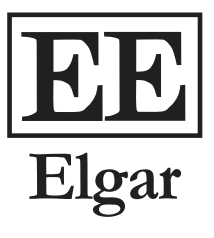In his new book, Frank Vibert takes the concept of ‘Comity’ as the entry point for a discussion of international rulemaking in today’s world.

‘Comity’ applies to any situation where different jurisdictions overlap in the same territorial space. This is what we have in the international space at the present time – many overlapping rules and spheres of responsibility. It is a situation often described as ‘incoherent’.
Comity is a familiar concept in legal studies where there is a long history of overlapping jurisdictions. For example, in medieval Europe there existed an overlap between the law of the king, the law of the church, the law of merchant guilds and local law. It is less familiar in other social sciences.
I choose comity as an organising concept, not only because it aptly describes today’s world of a multitude of international regimes, but also for three further reasons.
First, the concept helps us to focus on the normative element in international rulemaking. Norms are too important to be left out. They help shape the content of international rules, the structure of international institutions and the relationships between the governments and others involved in making the rules.
Secondly, comity centres attention on the use of discretion to avoid open conflict between systems. We do not want a world in conflict but need other ways in which countries can express and defend their values. The main tool for countries to exert influence on others, short of invoking force, is through regulation. For example, the EU aims to assert its influence in the world through such instruments as its regulation on privacy (GDPR) and its proposed carbon border adjustment measure. The analysis highlights the role of ‘permissiveness norms’ as a way to reduce conflict between different regulatory systems.
Thirdly, we have reached a point in international rulemaking where global initiatives have largely stalled. We need a way out of impasse. At the same time, we cannot plausibly claim that a new world order is imminent. Comity helps us to identify a pathway.
The New Cold War.
The book starts by looking at the reason for the current impasse in international rulemaking. In the old Cold War, the impasse reflected different world views. In the new Cold War, the impasse reflects differences in the domestic structure of power – the difference between countries that are broadly democratic and those that are authoritarian and repressive.
For a long time in the post-war world, it was thought that differences in the domestic organisation of power need not stand in the way as an obstacle to moving ahead on international tasks. However, this assumption is no longer valid. It no longer holds true because we have moved to a world where transactions are driven by data, information, and content – the so-called ‘knowledge economy’.
In the knowledge economy, democracies and authoritarian regimes choose different values to apply. For democracies, values such as privacy, the probity of data and contracts, and concepts such as personhood, are vital. Repressive regimes are only concerned with government control. These differences in the choice of values to apply in today’s world spill up and over into the international arena. The knowledge economy effects all spheres of public choice – from finance, to health, to the environment.
Out of Impasse
The book identifies two main ways out of this impasse. One way is to divide large areas of concern on the international agenda, such as trade or the environment, into much smaller sub-topics. In this way issues of principle can often be avoided while agreement can still be reached on narrow specifics. I borrow a phrase, ‘disjointed incrementalism’, from political scientists writing on the policy process, to describe this option.
The analysis in the book centres on a second option. This involves limited groups of like-minded democratic countries getting together to make the rules. They can start by making the rules for themselves and then try to extend their agreement to others, leading ideally in the end to full multilateral agreement. A current example is the proposed agreement on minimum taxes for multinational corporations. Agreement started within OECD and the G7 and has now extended to the G20 and to about 135 countries in all. The analysis concludes on why this option is to be preferred.
*****
When the Soviet Union collapsed, we hoped that we would see a world of converging global norms and much easier international rulemaking. This has not happened. Norms are not converging. Fully international rulemaking has hit a roadblock. The obstacle is that authoritarian regimes and democratic governments choose different principles to apply in rulemaking. This book explains what we should do about it.

Frank Vibert, Associate, Centre for the Analysis of Risk and Regulation (CARR), London School of Economics, UK
Comity: Multilateralism in the New Cold War is out now
Read Chapter 1 free on Elgaronline


Leave a Reply